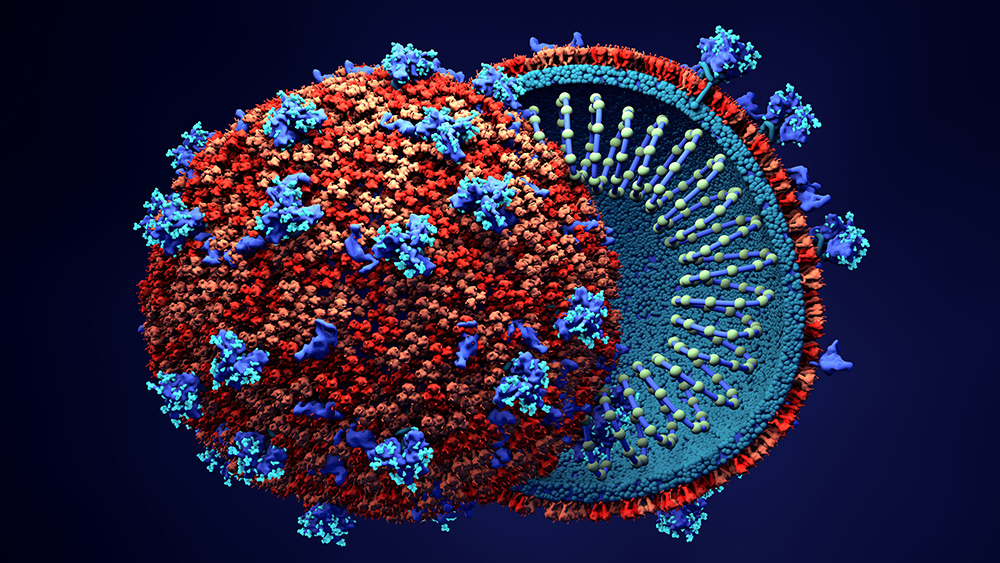Depressed mood, anxiety may also be symptoms of coronavirus infection – study
07/20/2020 / By Ralph Flores

The Wuhan coronavirus (COVID-19) has addled both researchers and health workers alike. After it was first detected in Wuhan, China late last year, experts have seen it develop from a respiratory infection to a disease that causes multiple organ failure at its worst.
Now, an international study suggests that COVID-19 may even impact the central nervous system, with tell-tale signs being anxiety and a depressed mood. In their report, published in The Laryngoscope, the team noted that among the symptoms of coronavirus, anosmia (loss of smell) and ageusia (loss of taste) were most closely associated with the two psychological symptoms.
“If you had asked me why would I be depressed or anxious when I am COVID positive, I would say it is because my symptoms are severe and I have shortness of breath or I can’t breathe or I have symptoms such as cough or high fever,” said senior author Dr. Ahmad Sedaghat, a professor at the University of Cincinnati College of Medicine.
Surprisingly, other symptoms of COVID-19, in particular those that were commonly linked to morbidity and mortality, did not warrant the same psychological symptoms.
“The only element of COVID-19 that was associated with depressed mood and anxiety was the severity of patients’ loss of smell and taste. This is an unexpected and shocking result.”
Psychological symptoms linked to loss of taste, smell
Sedaghat and his team looked at the characteristics and symptoms of 114 people with COVID-19 using a prospective, cross-sectional telephone study. The study, which ran for six weeks, also examined the severity of COVID-19 symptoms, including the loss of smell or taste, nasal obstruction, excessive mucus production, fever, cough and shortness of breath.
At the start of the study, around 47 percent of participants reported feeling depressed several days per week, while 21 percent reported having the same feelings almost every day. When asked about feelings of anxiety, 44 percent reported mild anxiety, and around 10 percent reported severe anxiety.
“The unexpected finding that the potentially least worrisome symptoms of COVID-19 may be causing the greatest degree of psychological distress could potentially tell us something about the disease,” said Sedaghat.
“We think our findings suggest the possibility that psychological distress in the form of depressed mood or anxiety may reflect the penetration of SARS-CoV-2, the virus that causes COVID-19, into the central nervous system.”
Prior to this, researchers believed that the coronavirus uses the olfactory tract, which links the nerves in the nasal cavity to the brain, to gain access to the central nervous system. This was seen during the 2003 SARS outbreak, which first emerged in China and spread to 29 countries. Animal studies have built on this evidence, showing that the virus does indeed use the olfactory tract as a gateway into the central nervous system. To note, the team stressed that symptoms of psychological distress, such as depressed mood and anxiety, are linked to COVID-19 when they are accompanied by a loss of taste or smell. (Related: Scans show changes in brain caused by coronavirus-related loss of smell.)
“This may indicate that the virus is infecting olfactory neurons, decreasing the sense of smell, and then using the olfactory tract to enter the central nervous symptom,” Sedaghat said.
He also noted that COVID-19 does affect the central nervous system in other ways, as evidenced by the seizures and altered mental status observed in patients with severe symptoms. But depressed mood and anxiety may be considered as signs of milder infections. Further studies, Sedaghat said, could look into how prevalent the link is between depressed mood and COVID-19, as well as how the coronavirus interacts with the central nervous system.
At press time, there were over 13 million confirmed coronavirus cases globally and more than 580,000 deaths, according to data from Johns Hopkins University.
Sources include:
Tagged Under: ageusia, anosmia, Anxiety, brain health, central nervous system, China, coronavirus, covid-19, depression, Flu, infections, infectious diseases, mental health, olfactory system, outbreak, pandemic, research, superbugs, virus




















